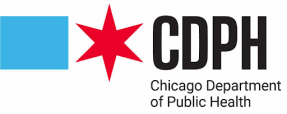Abortion Care
Abortion is legal in Illinois.
 Abortion is still legal and available in Illinois. Make sure you know your rights!
Abortion is still legal and available in Illinois. Make sure you know your rights!
Many states had or passed laws that banned abortion when Roe v. Wade was struck down. Illinois has a law keeping abortion legal: Governor JB Pritzker signed the Reproductive Health Act into law in 2019.
Learn how to protect your digital privacy when seeking reproductive care.
The Illinois Attorney General has provided specific guidance to law enforcement on abortion.
Looking For Resources In Chicago?
Use the City’s digital community resource directory
Pregnant Person:
- Talk to someone about your options for free: All Options Talkline 1-888-493-0092
- Already know you need an abortion? Click here for help.
- Do you need financial support? Chicago Abortion Fund can help, call 312-663-0338
- Telehealth Abortion Providers/Abortion by Mail:
What is abortion?
An induced abortion is the voluntary termination of a pregnancy. An induced abortion can be done surgically or by taking medication. There are many reasons a person may have an induced abortion. A person may not wish to continue their pregnancy, or it may be medically indicated due to maternal complications of pregnancy or fetal anomaly.
In Illinois, a person can have an induced abortion for any reason until fetal viability, around 24-26 weeks of pregnancy. A fetus is considered viable if there is a significant chance it will be able to survive outside of the uterus without extraordinary medical interventions. A healthcare provider must determine whether pregnancy has reached viability. After a pregnancy is determined to be viable, an induced abortion can only be done to protect the patient’s life or physical and mental health. If you are unsure if your pregnancy is viable, speak to a healthcare provider to determine whether you can legally have an abortion in Illinois.
Anyone with the biological capability to become pregnant could need an abortion. This includes women, transgender men, or non-binary people. People of all gender identities need access to safe abortion care.
Pregnancy Options Counseling
The standard of care for any pregnant person is to provide them with comprehensive pregnancy options counseling. Pregnancy options counseling, or options counseling, is a discussion between a pregnant person and a healthcare provider, or other support workers, that occurs when a pregnant person learns or shares with a provider that they are pregnant. Anyone can be trained to provide options counseling, but the information they provide must be medically accurate, non-biased, and comprehensive of all options. There are 3 options when someone is pregnant:
You are entitled to options counseling that presents all 3 options in a neutral and factual way. No one else should be directing your decision.
Please note: there are some organizations referred to as Crisis Pregnancy Centers that do not provide the full spectrum of reproductive health services. These centers do not typically provide the standard of care when it comes to options counseling. They do not offer abortions or referrals to abortion providers.
It is vital that pregnant people understand all the pregnancy options available to them, including abortion. In Illinois, you are not required to endure a waiting period, view an ultrasound, or review any state-mandated informational text or video in order to obtain an abortion.
Abortion Types
There are two kinds of abortion: medication and surgical.
- Medication/Medical Abortion: A medication abortion uses two different medications to end a pregnancy. These pills are sometimes referred to as the “abortion pills." You can obtain these medications at a medical office or via telehealth through a licensed healthcare provider in Illinois. You will be thoroughly counseled on how to take the medication and what to expect during the medication abortion process. A medication abortion does not require surgery or anesthesia; however, your provider may want you to get an ultrasound or blood work. You are usually able to have a medication abortion up until 10-11 weeks of pregnancy. It is 93-98% effective at ending a pregnancy, and it is most effective earlier on in the pregnancy.
- You cannot tell the difference between an induced abortion and a spontaneous abortion (i.e., a miscarriage). If you have complications with a medication abortion and seek medical care because of it, you do not have to tell the healthcare provider taking care of you that you had an induced medication abortion.
- Self-Managed Abortion is when a person chooses to induce their own abortion outside a medical setting. Self-managed abortion is not new. People have been having abortions for centuries. Self-managing an abortion can be safe and effective and often include:
- Self-sourcing abortion pills and taking them at home.
- Having an abortion supported by a home provider or doula who has knowledge and training.
- Having an abortion that is mostly self-managed but may also begin or end with support from a physician or other licensed provider.
- Surgical Abortion: A surgical abortion is a procedure that is usually done in a medical office with sedation and/or pain-relieving medication. The procedure itself usually takes less than 5-10 minutes, but the whole visit may take a few hours. A surgical abortion can be performed in a one-, two- or three-visit procedure, depending on how many weeks pregnant you are. After the procedure, you will be monitored briefly and go home the same day. Oftentimes, you will need to have someone take you to the procedure and pick you up. It is 99% effective at ending a pregnancy.
- Hospital-Based Abortions: Most people can safely manage a medication/medical abortion at home or have a surgical abortion in an outpatient clinic. However, some medical conditions may require a pregnant person to have a surgical abortion in a hospital-based setting due to an increased risk of complications.
-
There are more resources available in a hospital-based setting to care for you safely if complications were to occur.
-
It is essential to remember that your medical history, along with how many weeks pregnant you are, plays a role in a medical provider’s decision regarding what type of abortion is recommended and what type of setting it should occur in.
-
The most common medical conditions that may require a hospital-based surgical abortion include, but are not limited to: heart failure, kidney failure, recent seizure(s), severe anemia, extremely high blood pressure, bleeding disorders that make it more difficult for your blood to clot, large and symptomatic fibroids, a pregnancy growing outside of the uterus, abnormal location of the placenta, or if it is medically indicated, but your gestational age is past viability (24-26 weeks in Illinois).
-
Additionally, you may need a surgical abortion in a hospital-based setting if you take medications that thin your blood (i.e., “anticoagulants”).
-
Make sure to discuss your medical history and any medications you are taking with your abortion provider and/or specialist so that you can work closely with them to determine if a hospital-based abortion is necessary.
-
- Hospital-Based Abortions: Most people can safely manage a medication/medical abortion at home or have a surgical abortion in an outpatient clinic. However, some medical conditions may require a pregnant person to have a surgical abortion in a hospital-based setting due to an increased risk of complications.
Every pregnant person’s situation is different. Your medical history, personal preferences, and ability to access care may play a role in what type of abortion you have. Speak with a healthcare provider to determine what the best abortion option is for you.
As with any medical intervention or procedure, medication and surgical abortions have risks associated with them. However, these risks are rare and overall abortion is very safe. Having an abortion does not impact future fertility. In fact, fertility returns quickly after an abortion. If you are interested in birth control, talk to your healthcare provider about birth control options.

Post-abortion Support
Having an abortion can trigger many different feelings including relief, hope, guilt, anger, and sadness. If you find that you have trouble coping after getting an abortion, let your healthcare provider know. You can also find support below:

Minors in Illinois
If you are under 18 years old and need an abortion in Illinois, you do not need to notify or get permission from a parent or legal guardian. Previously, there was a parental notice law in Illinois, but it was repealed. This became effective on June 1, 2022. Additionally, you are not required to speak separately with a counselor or social worker about your decision unless you want to. If you desire to speak with a social worker or counselor, tell your healthcare provider.
Please note that some telehealth abortion providers do not provide services to people who are pregnant and under the age of 18.

Out of State Support
If you live outside of Illinois, you may be able to leverage telehealth abortion providers through the mail for a medication abortion:
At this time, no state has explicitly banned people from traveling to another state to receive an abortion. If you live in a state that limits abortion access you can travel to Illinois, where abortion remains legal, to receive comprehensive reproductive health services.
If you are seeking an abortion in Illinois but traveling from out of state it is important that you:
- Speak with a healthcare provider to determine what the best abortion option is for you.
- You may be able to receive a telehealth visit ahead of your appointment.
- You may need to stay overnight for a multi-day procedure.
- Bring your ID and insurance information to your appointment.

Insurance
If you are seeking an abortion, you may want to choose an abortion provider that accepts your insurance plan. In Illinois, Medicaid and most private insurance plans that cover pregnancy-related care must cover the cost of an in-office abortion. Learn more about when abortions must be covered by private insurance in Illinois.
Some insurance plans only cover in-office services. If you desire an abortion via telehealth, check with your insurance provider to ensure that they cover telehealth abortion services. Alternatively, some telehealth abortion providers do not accept insurance and you must pay out of pocket for their services.
Illinois is one of only 16 states that go beyond federal Medicaid limits and use state funds to cover abortions for people enrolled in Medicaid. Illinois state law provides a right to reproductive healthcare, including abortion and maternity care. There are two programs for pregnant people, regardless of citizenship or immigration status:
- Medicaid Presumptive Eligibility (MPE) offers immediate, temporary coverage for outpatient healthcare for pregnant people.
- Moms & Babies coverage is the full Medicaid benefit package, including covers both outpatient healthcare, and inpatient hospital care, including labor and delivery, primary and specialty care, and prescription drugs for pregnant people. Moms & Babies can cover up to three months of coverage retroactively. You do not have to be a citizen, a legal immigrant or have a social security number to qualify for Moms & Babies.
When applying for Medicaid, be sure to check YES next to “Apply for Family Planning Program?”. This way, even if you don’t qualify for Medicaid you will receive coverage for reproductive healthcare include abortion. Learn more about applying for Medicaid here.
If your insurance doesn’t cover abortion services or you don’t have health insurance, there are private organizations that may be able to help you with abortion costs, and some clinics may also provide financial assistance.
What should you do if you do not have health insurance coverage?
- Go to healthcare.gov to see if you qualify for coverage.
- Explore the Illinois Breast and Cervical Cancer Program for uninsured Illinois residents aged 35-64. Call the Women’s Health Line at 888-522-1282 to get connected to a provider that can provide a free pelvic exam, Pap smear, breast exam, and mammogram.
- Find a clinic that receives federal grants to ensure they provide services regardless of someone’s insurance status or ability to pay:
- Title X (ten) Family Planning Clinics are funded to provide a broad range of family planning services and related preventive health services. These include STI and HIV testing, HIV counseling, cervical and breast cancer screening, and HPV vaccines. Services are confidential and provided regardless of patients’ ability to pay and clinics charge for services on a sliding fee scale.
- Federally Qualified Health centers are community-based organizations that are funded to deliver comprehensive, culturally competent, high-quality primary healthcare services, regardless of patients’ ability to pay, and charge for services on a sliding fee scale.
Training Resources
- Resources and training from ACOG (American College of Obstetricians and Gynecologists)
- If you would like more information and training regarding pregnancy options counseling, you can find virtual training opportunities for options counseling here. Onsite training and technical assistance are also available.
- If you are looking to connect a patient for birth control and high-quality reproductive healthcare, you can use the ICAN! Referrer Form.
Some Key Take Aways
- Access to comprehensive reproductive healthcare services, including abortion care, is essential to individual health and well-being.
- The Health Insurance Portability and Accountability Act (HIPAA) Privacy Rule (Privacy Rule) supports such access by giving individuals confidence that their protected health information (PHI), including information relating to abortion and other sexual and reproductive healthcare, will be kept private.
- The Emergency Medical Treatment and Labor Act (EMTALA) requires that, for any individual showing up to the hospital with an emergency medical condition, the hospital is required to provide life-saving emergency care, including abortion care.
- Medication abortion has been approved by the FDA since 2000 as a safe and effective option for induced abortion. Federal regulation permits medication abortion to be dispensed by telehealth and sent by mail via certified prescribers and pharmacies, in addition to in-person dispensing in clinics, medical offices, and hospitals.
- Do not assume anything about your patients and their feelings about their pregnancy. Hold space for them to have a range of emotions.
- Many more people seeking reproductive healthcare and abortion care will be coming to Illinois. This may include people with disabilities. People with disabilities can include those who are blind/low vision, deaf/hard of hearing, have intellectual or developmental disabilities or use wheelchairs or have mobility disabilities. Many individuals with disabilities may have more than one disability. We have complied some resources here.
- Please remember that transgender and non-binary people need abortions, too.
 On June 24, 2022, the U.S. Supreme Court voted to overturn Roe v. Wade. This court case had been the bedrock of the right to choose abortion since 1973, along with Planned Parenthood v. Casey, which affirmed Roe in 1992. With the end of federal protections for abortion, the decision to outlaw abortion will be left up to individual states. Many states, including Texas and Missouri, now have restrictive laws that ban abortion. With Roe struck down, there are huge geographical areas of the country without legal abortion access. Further, access to overall reproductive healthcare including contraception and fertility treatment, is at risk of being eroded across the country.
On June 24, 2022, the U.S. Supreme Court voted to overturn Roe v. Wade. This court case had been the bedrock of the right to choose abortion since 1973, along with Planned Parenthood v. Casey, which affirmed Roe in 1992. With the end of federal protections for abortion, the decision to outlaw abortion will be left up to individual states. Many states, including Texas and Missouri, now have restrictive laws that ban abortion. With Roe struck down, there are huge geographical areas of the country without legal abortion access. Further, access to overall reproductive healthcare including contraception and fertility treatment, is at risk of being eroded across the country.
Abortion is legal under Illinois law now that Roe v. Wade has been overturned, since the Reproductive Health Act, signed into law by Governor Pritzker on June 12, 2019, makes decisions about reproductive healthcare including abortion a fundamental right in the state. States like Illinois, and specifically cities like Chicago, were already destinations for those seeking abortion care services. States in the region have already passed restrictive abortion laws and created environments hostile to abortion clinics through targeted regulation of abortion providers. Many people who need abortions face logistical and financial barriers beyond finding a healthcare provider – they must arrange to travel many miles, stay overnight, and manage follow-up care. This makes abortion care unique among other healthcare services.
Abortion is a common procedure; 1 in 4 women will undergo one in their lifetime. Data shows that the majority of those choosing abortion are already parents - nearly 60% of people seeking abortion already have at least one child. Reasons for having an abortion are varied and can be complex, but it should only be a decision reached by a pregnant person with their healthcare provider. With the burden of maternal mortality falling disproportionately to Black and Latinx communities, forcing individuals to continue unwanted or mistimed pregnancies risks exacerbating this inequity.
 The City of Chicago, acting through the Chicago Department of Public Health (CDPH), has identified the need for support related to reproductive healthcare, including abortion access. Chicago has served as a haven for abortion care in the Midwest, due to a lack of abortion providers and restrictive laws in surrounding states.
The City of Chicago, acting through the Chicago Department of Public Health (CDPH), has identified the need for support related to reproductive healthcare, including abortion access. Chicago has served as a haven for abortion care in the Midwest, due to a lack of abortion providers and restrictive laws in surrounding states.
CDPH’s mission is to work with communities and partners to create an equitable, safe, resilient, and Healthy Chicago. CDPH’s work is guided by its community health improvement plan, Healthy Chicago 2025, which is focused on racial and health equity. This includes ensuring that all individuals have control over their own reproductive healthcare and decide if, when, and how to become a parent. Healthy Chicago 2025’s assessment theme of "Improve systems of care for populations most affected by inequities," includes:
- Establishing and promoting a comprehensive resource information and referral system.
- Advocating to increase comprehensive and culturally appropriate healthcare for all by removing eligibility barriers, implementing sustainable reimbursement rates, and expanding coverage for preventive services and root causes.
The City of Chicago is providing funding to support individuals across Chicago and Illinois, as well as residents from other states, who are seeking abortion care services in our city. The intent of this funding is to build capacity for organizations that provide such assistance. Learn more about the Justice for All Pledge here.
On July 28, 2022, the City of Chicago issued an Executive Order, prohibiting any City agency from participating in an investigation or proceeding initiated in or by another state that seeks to impose civil or criminal liability or professional sanctions against a person or entity for providing legal reproductive healthcare in the State of Illinois and/or aiding any person seeking legal reproductive healthcare in Illinois. In the wake of the overturning of Roe v. Wade, the City of Chicago is taking these steps to safeguard further those providing critical healthcare, namely reproductive, obstetric, and gynecological services. On September 21, 2022, Chicago City Council codified this Executive Order as an ordinance and expanded it to include gender-affirming care.
On August 31, 2022, the City of Chicago announced that the Chicago Abortion Fund and Planned Parenthood of Illinois had been selected as the two delegate agencies for the City’s Justice for All initiative. These two organizations will each receive $250,000 to support transportation, lodging, safe and necessary reproductive, obstetric, and gynecological care: and follow-up services in 2022.
Disclaimer: This website is for information only. It does not provide legal and medical advice or create an attorney-client relationship.




